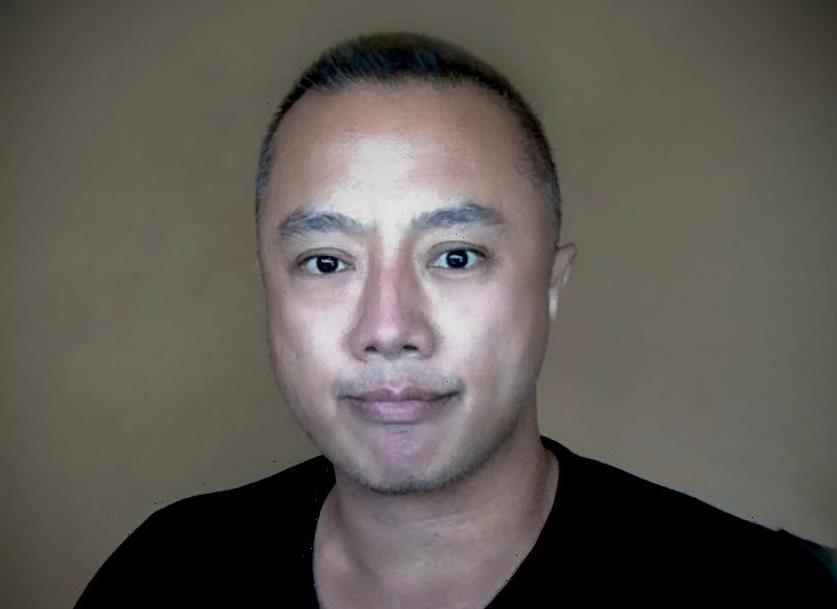I work in the film industry, so storytelling is in my nature. There is an invaluable power to storytelling; stories are what allow us to connect. They are a tool that can be used to inspire others and provide them with an entirely different perspective — an ability that has always been critical, and this has become even more apparent in today’s social climate. Growing up, the stories of others impacted me greatly as a person, and through movies, I was able to bond with my father, Jimmy Lin. Together, we binged on classics like “Casablanca,” “The Godfather” trilogy, “Rocky,” “Eastwood Westerns” and so on — hence my inclination to share my own story.
I am hopeful that my story will impact others the same way that the stories that came before me impacted me.
I grew up in a boarding school three hours north of Wellington, New Zealand, and at 16 years old, I moved to the United States. The aspiration was to seek new possibilities in the innovative front of American culture and modus operandi. America was the oven that baked all of the new world leaders, and I figured that if I wanted to excel, I had to be amongst the best to learn from the best — both academically and professionally.
Upon enrolling in an American high school, I realized how prevalent racial segregation was, and how polarizing it could be. I remember one instance, for example, when my political science teacher (who also happened to be the principal) taught a lesson about U.S. presidents. He read a passage about how no minorities or women have ever been elected president and proceeded to add, “So for those of you that are non-caucasians or females, I’m sorry, but focus your aspirations elsewhere.”
A Mexican girl in my class named Norma started to protest. She tried to tell him her perspective and story, but he didn’t listen.
Instead, he nonchalantly told her that the deadline to drop his class was in two weeks, and Norma immediately walked out and never came back. I developed the realization that, as a minority, I was an “outsider,” and there were only two ways to become an “insider”: 1) be white, or 2) be very successful. Since I wasn’t the former, I vouched to make the latter happen.
I worked very hard, and I chose to align myself with people I felt were the best in the industry. I worked alongside my father, and I studied his work ethic, drive, “social” bells and whistles, and technique as he grew into increasing success as a producer in the film industry.
I was also lucky to have a mentor in Masayuki Nakamura, the former head of Tohokushinsha (a prolific movie studio in Japan), former vice president of Sony Pictures TV Japan and high-level executive at Kadokawa Publishing. Nakamura San not only showed me the ropes, but he also endorsed my pursuit and growth in the business. With their support, eventually, my hard work began to pay off.
As a distributor, we have released over 2,000 films to the Pan-Asian market, and I eventually launched two separate entertainment companies, Filmula and Clandestine Laureate.
I worked on several ongoing projects, including a film about math genius Christopher Havens with Neil Burger and an AMC television series entitled “Champagne Supernovas” about style icons Kate Moss, Marc Jacobs and Alexander McQueen with showrunners Rolin Jones and Sheila Callahan.
As I began to find increasing success, my prior realization proved true: the more successful I became, the more I felt like an insider in society — but what about other minorities who have felt the same way as me? I often think back to Norma, the girl from my high school, and about how the outcome of her protest against the principal could have been very different if he had just listened to her.
And that’s what we should do.
As we share and listen to the stories of others, we grow closer to one another, and we set the fundamental groundwork necessary for inspiring the next generation to develop their own stories in a way that is authentic to them.
Our perspectives begin to align with one another. Stories are one tool that will help lead us towards a new reality in which everyone is an insider, and everyone has an even playing field to be anything they want to be — even the president.
Johnny Lin is a producer, financier, distributor, and aggregator of films in Asia and North America. He is also principal of Filmula Entertainment and producer of Clandestine Laureate.
Throughout the month of May, Variety will publish essays and stories from prominent AAPI artists, artisans and entertainment figures celebrating the impact of AAPI entertainment and entertainers on the world at large.
Source: Read Full Article
